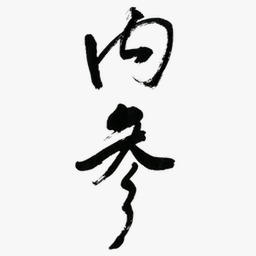Wang Liqiang's story is unconvincing so far

Adam Ni and Yun Jiang, China Neican
We have approached our analysis with great care given the possibility that Mr Wang and his family may be in danger. The following analysis is based on existing publicly available information.
Many of Mr Wang’s public claims are unsupported or uncorroborated based on the available evidence thus far. Some of his claims are not true, and some of his statements detract from his credibility. Circumstantial evidence has raised additional questions. If Mr Wang was later discredited, it could undermine the public’s trust in Australian media and political leaders. In the future, the public may be less inclined to believe foreign interference is a real and credible threat in Australia.
Australian media broke the story of the defection of an alleged PRC intelligence operative, Mr Wang Liqiang 王立强, on Saturday, 23 November. Mr Wang asserts that he was involved in the Causeway kidnappings in late-2015, the infiltration of HK student organisations, and information operations in both HK and Taiwan to advance the CCP’s interests.
We make the following observations:
- Much of the evidence presented by Mr Wang in his media interviews are general and vague in nature. The operations he mentioned are known in the public domain, and he did not reveal new credible details about these operations.
- On least three occasions, Mr Wang called by the wrong name the Central Military Commission’s Joint Staff Department (or its predecessor, the General Staff Department), which conducts military intelligence operations. On each one of the three occasions, he used a different wrong name. This is highly revealing.
- It is highly unusual for one junior intelligence operative (our assumption given his current 27 years of age) to play a big role in all these high-profile operations in different jurisdictions in a short period of time.
- Mr Wang claims that Beijing has a “cyber army” conducting information operations in Taiwan and that he was their “boss”. This is unlikely given his age, education background, and expertise.
- Working across Taiwan, HK and Australia in such a short period of time appear to be unusual given imperatives for intelligence operatives to specialise, and develop their local networks.
- Mr Wang claims that as a PRC intelligence operative, he was sent to infiltrate HK universities to convert pro-democracy students to the CCP’s side. He added that “many of the [mainland] students he influenced are now involved in the violent clashes with pro-democracy students.” There is no evidence that mainland and HK pro-democracy students have engaged in “violent clashes”.
- ASIO has so far not provided Mr Wang with protection. If his claims are true, then his intelligence value would presumably be quite considerable.
- We find it surprising that his wife and child are allowed by the CCP to be based in Australia despite him working as an intelligence operative on sensitive operations.
- He was allowed to travel to Australia on a holiday Visa, which seem unlikely if he was working on important intelligence operations.
- The way that Mr Wang talked about the HK protests and students indicates that he does not have a solid grasp of local politics which he should have.
- Mr Wang claims that he was involved in the ordering of the Causeway kidnapping operations in HK in late-2015. He did not provide any corroborating detail.
- In describing the activities of the “cyber army,” Mr Wang talked about taking down Facebook pages and using VPN to hide their tracks. The way that he talked about cyber operations, in general, did not indicate he had expert knowledge in this area.
- Upon being asked where Huang Xiaomo was, Mr Wang asserted confidently that he was in the office of Mr Wang’s boss at that exact moment in time. It is unclear how Mr Wang could be so confident about this.
- His possession of multiple identity paper appears unusual given the possibility of compromise if he was discovered to be carrying them at the same time. His alleged Korean Passport appears to be an amateur production.
- He claims to be working for military intelligence, but appear to be unclear about the work breakdown between the PLA, MSS and other party-state actors involved in intelligence.
- Mr Wang claims to work for Chinese military intelligence. He does not appear to have military training or intelligence operative training. He does not have any PLA rank which is unusual for military intelligence officials.
- There are indications that Mr Wang does not speak English. Given his alleged intelligence role in HK, English skills would have been important.
- Mr Wang’s account of his mission to Taiwan appears unusual. He said he was given a Korean passport to go to Taiwan to meddle in the upcoming elections. But there is no indication that he speaks Korean.
There may be explanations for some or all of the above observations that are in Mr Wang’s favour. But given the total weight of these observations, we are sceptical of Mr Wang’s claims and credibility.
Implications for Australia:
Several major Australian news organisations, as well as parliamentarians such as Andrew Hastie, have appeared to publicly support Mr Wang’s claims. If his claims turn out to be credible and true, then his intelligence could prove valuable.
However, if important elements of his claims were later discredited, it can undermine the trust the Australian public has in the Australian media. It may even undermine trust in any future defectors. Most importantly, it may damage Australia’s ongoing countering foreign interference efforts. The Australian public may be less likely to believe that foreign interference is a real and credible threat in Australia.
China Neican decodes China issues through concise, timely, and policy-focused analyses.
